

Stone Farm: For half of a century.
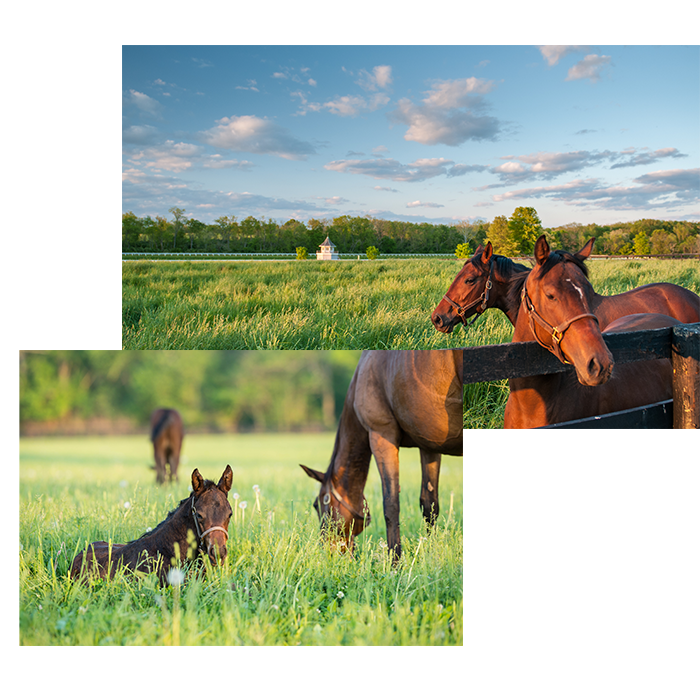
If you take care of the land,
the land will take care of you.
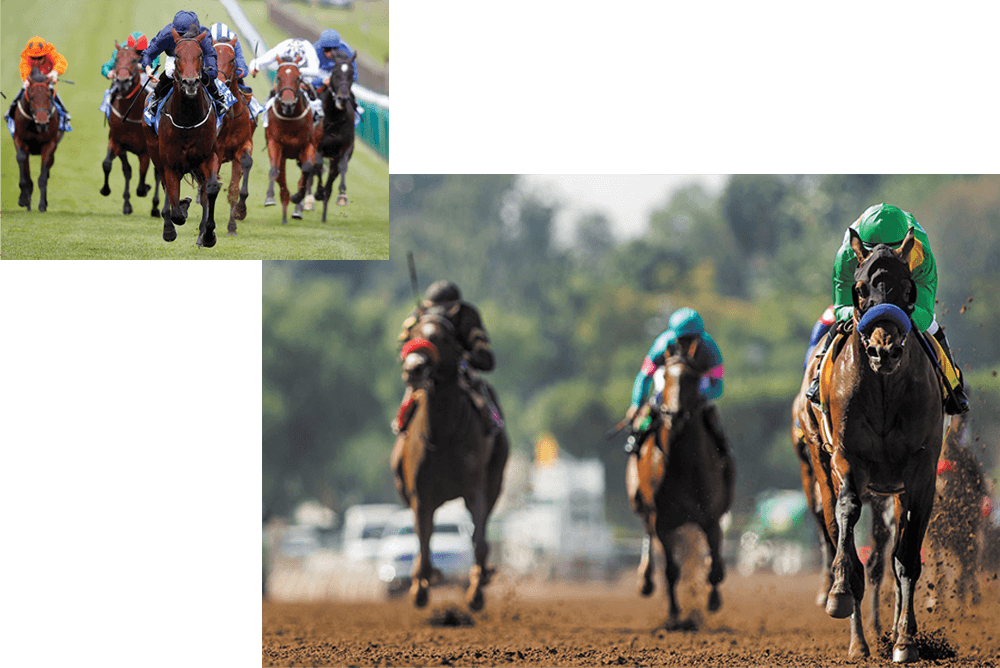
We’re trying to raise you a good horse.
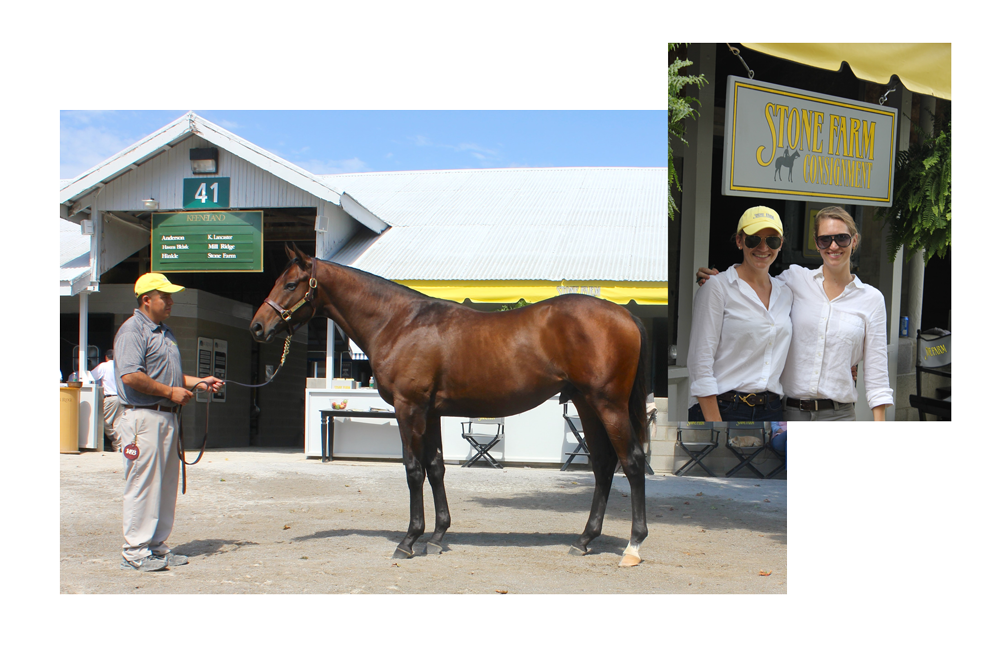
We sell only what we raise.
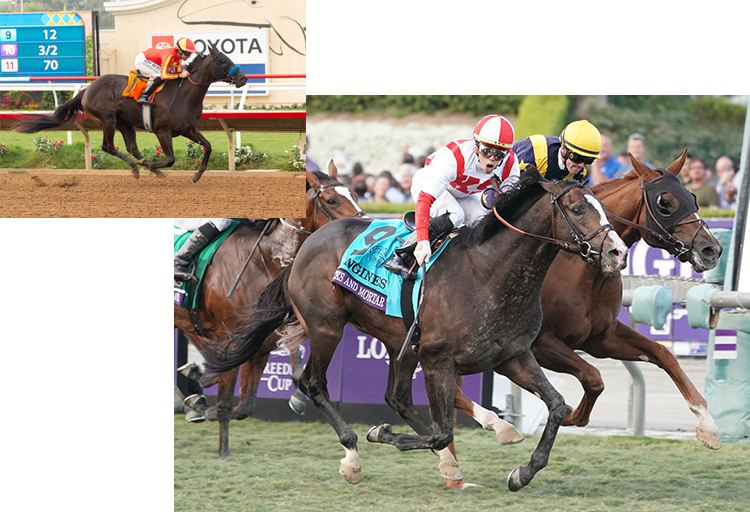
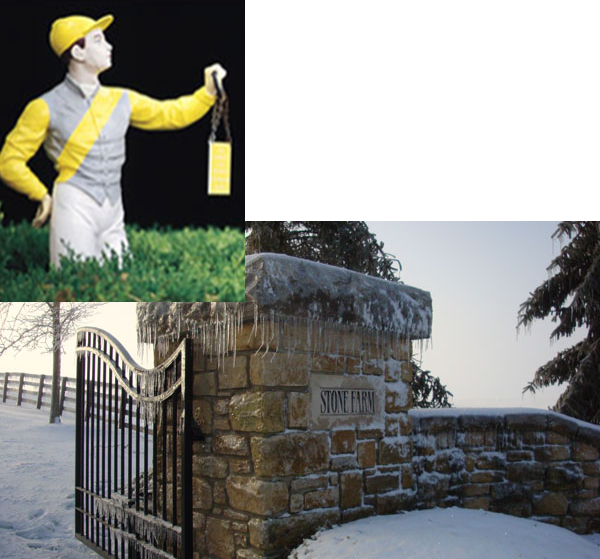
In the modern world of speed figures, tracking devices, and sheets handicapping, just about any racetracker will tell you making it into the hallowed ground of the winner’s circle might depend more on cats, birds, bugs, peanuts, popcorn, and pennies.
And those are just a few icons of a virtual pantheon of superstitions that many owners, trainers, jockeys, and fans either rely on with something akin to religious zeal in seeking good luck or methodically avoid in hopes of dodging misfortune.
These folkloric notions, which pass from generation to generation and often touch some of racing’s greatest competitors, both human and equine, have a rich history dating back centuries. The Encyclopedia of Superstitions, published in 2008, states that brass ornaments made 5,000 years ago were designed to ward off evil spirits from horses. Other beliefs gradually arose and spread, such as the idea that a person would gain good fortune if he spit on his little finger and rubbed it on a horse.
Although many racing luminaries might profess they do not believe in superstitions–defined in the Microsoft Encarta Dictionary as “irrational but usually deep-seated beliefs in the magical effects of a specific action or ritual”–nearly everyone has a story to tell regarding fortune or adversity.
“I’m not superstitious–but when you see certain things, you just wonder.”
–Stone Farm owner Arthur B. Hancock III
“I’m not superstitious,” declared Stone Farm owner Arthur B. Hancock III, “but when you see certain things, you just wonder.” Omens Hancock can relay many stories of what he calls omens before remarkable events in his racing life, including winning the 1999 Toyota Blue Grass Stakes with Menifee, and involving the experiences of his late father, Arthur B. “Bull” Hancock Jr., master of Claiborne Farm.
The younger Hancock grew up skeptical of his father’s insistence that the family sit in the same seats at Keeneland when they had a horse running as well as his conviction that his horses would lose if he encountered a certain male acquaintance at the track.
“I was at Vanderbilt (University), and I told my father for that to be true, it would have to happen 50 or more times. He said, ‘It’s happened enough so that if I see that man, I know I’m not going to win.’ And now there’s a person who, if I see him before a race at Keeneland, I know there’s no way I’m going to win–we always get beat,” Hancock said with an ironic chuckle.
With Menifee, Hancock said he clearly recalls standing in Keeneland’s paddock talking with several people when bird droppings landed on his suit collar. Rather than feeling appalled, he was buoyed.
“I said it was an old saying that if a bird did that to you it’s good luck,” Hancock said. “Some guy had a Kleenex, but I said,’Just leave it there.’ Of course, Menifee won the race.” For other examples of good luck, Hancock cited finding a penny lying heads-up and a four-leaf clover before Sunday Silence, the champion colt he co-owned, won the 1989 Kentucky Derby. Before Sunday Silence’s Preakness Stakes victory, Hancock saw a Baltimore oriole fly across his driveway and land on a tree limb, followed by a bluebird.
“Some people might laugh and scoff at omens, but I’ve had enough experience to say they’re usually a pretty good sign about what’s going to happen,” Hancock said before exclaiming: “Who knows?”
…
…Hancock also has several stories about black cats and luck. In 1981, when he and his wife, Staci, were on their way to see Tap Shoes–a multiple grade I winner they co-bred and -owned–run in the Blue Grass Stakes, a black cat scampered in front of their car. “Staci said, ‘Stop!’ but I said, ‘The hell with it,’ and kept going, crossing the path it had taken,” Hancock recalled.
“We got to Keeneland and it rained two inches and our trainer, Mr. (Horatio) Luro, had to scratch Tap Shoes–and that was his only prep race for the Kentucky Derby.” A further bit of bad luck ensued at the Derby, when Tap Shoes’ tongue tie broke and a substitute caused the colt to shake his head in discomfort; he wound up 14th.
Just one year later Hancock and his wife were heading home from a dinner out prior to their homebred Gato Del Sol’s run in the Derby. “Staci said, ‘Stop! A black cat!’ So, I backed up and went down a one-way street in the wrong direction and then a cop stopped me,” he said.
“I told him, ‘I know you’ve heard a lot of excuses, but I didn’t want to cross that black cat’s path.’ I told him about what had happened with Tap Shoes,” Hancock recalled. “He said, ‘I don’t blame you, Mr. Hancock. Here’s your license back and good luck in the Derby.’ ” The final twist in that story is the police officer bet his paycheck on Gato Del Sol, who won and paid $44.40 to both his and Hancock’s delight.
…
Other superstitious practices around tracks include avoiding hanging up pitchforks or rakes with straw stuck in the prongs; installing cloves of garlic in barns and spreading salt in stall corners; banning brooms in shed rows and on shipping vans; wrapping dollar bills in horses’ bandages the night before races; avoiding betting with $50 bills and marking programs with red pens; and displaying horseshoes with the ends up so luck can’t drain out from the interior.
It’s considered bad luck for breeders to name a horse after themselves or for owners to change the name of a horse. “They don’t turn out to be anything,” Cornes explained. “And it’s an absolute kiss of death if someone says ‘I’ll see you in the winner’s circle’ before a race–that puts a hex on you.” Even though such beliefs may strain the logical mind, some of history’s greatest cultures and leaders have been influenced by superstitions, Hancock noted, beginning with the ancient Romans’ aversion to black cats. He suggested that even though some events can’t be explained rationally, he has grown to understand the beliefs of previous generations regarding portents of fate in racing.
“I think Shakespeare said something like, ‘There are many things in the universe not contained in your petty philosophy,’ ” Hancock said. “I’m going to be just like my father–I’m not going to ignore signs and tempt fate; it’s just too awesome and powerful. We’re all at the mercy of destiny and providence.”
